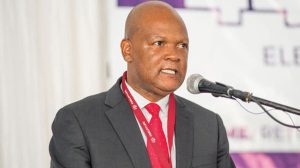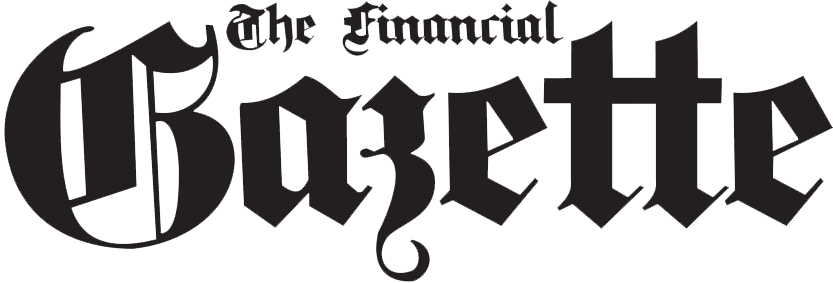DESPITE the economic challenges in Zimbabwe, the past year has seen promising trends on the Zimbabwe Stock Ex-change (ZSE). In a discussion with The Financial Gazette’s Almot Maqolo (AM), ZSE chief executive Justin Bgoni (JB) detailed positive market performances, investor interest, and initiatives designed to boost liquidity, offerings, and accessi-bility. Below are excerpts from the interview:
AM: What have been the major trends on the ZSE over the past year? What factors have contributed to these trends?
JB: From what we have seen, I think especially this year there have been good trades on ZSE and the market has gone up by more than 100 percent for the first two months. It seems there are very good trades on ZSE this year and value is going up as well. Some of it is in terms of money supply and inflation, and the ZSE tends to be a good place in terms of hedging. Also generally accepted was that the share prices on the ZSE were a bit on the low side, so people took advantage of that.
AM: Which sectors on the ZSE are demonstrating the most growth potential? Which ones are facing challenges?
JB: What we have seen is that it tends not to be in terms of sectors but in terms of size. We have seen that big counters like Delta and Econet have done well; they have done a lot of trades, which is not necessarily cascaded to the smaller counters that we have seen; it tends to be more dependent on the size of the company; the more liquid ones have done much better.

Justin-Bgoni
AM: Are there any new listings or IPOs in the pipeline that investors should be aware of?
JB: What we have done on the ZSE side is we have a training programme that we want to do this year called the Prospective Issuers Training programme. It’s free, and it’s running at the moment. The aim of this programme is to teach people how to get listed on the ZSE and we are quite bullish on that one. It might not be giving us new listings this year, but we believe it will give us new listings in the near future. The programme is open at the moment for applications and we are quite happy in terms of pro-spects. Then, in terms of new listings that can happen this year, we are looking at some Real Estate Investment Trusts to list on the ZSE. There are some pension funds that are going through the process of being listed.
AM: How would you describe the current appetite of foreign investors towards the ZSE? What are the major barriers to entry?
JB: The appetite is not as good as we would like it to be; it’s not just on ZSE but on most exchanges in Africa in general. If you look at Kenya and Nigeria, there has been a flight of foreign investors in Africa. So, we are not the only ones suffering because of this.
So, what we have done now to get investors from outside the country is to target our diaspora community. So, we have quite a few roadshows that we set up for this year. We are also trying to get new investors who traditionally do not invest in Zimbabwe. So, we are looking to the East to get investment, especially from China.
We have a roadshow coming up from the 11th to around the 15th of March in Beijing and Shanghai and we are going to talk to some investors in China about getting them to look at Africa and Zimbabwe in particular. So that is what we are doing now. There is an issue of knowledge; people do not understand what opportunities are there in Zimbabwe to invest.
There is also an issue in terms of currency, but I think that we have solved quite a bit of it now in terms of currency. At the moment, if you buy your shares on the ZSE, it’s easier to get your money out and what’s also happening is that a lot of companies on the ZSE are paying dividends in US dollars, which also helps in getting returns in US dollars.
AM: What is the ZSE doing to attract greater foreign investment and improve liquidity?
JB: We are trying to get new investors, particularly in retail and there is a new product that we want to launch in the next two months, or so-called intraday trading. So, what happens at the moment is that if you buy your shares on the ZSE, you can only sell them after three days. This product that we are about to launch is that if you buy your shares on that day, you will sell them on another day. So intraday trading is one of the things that we are going to launch that helps in terms of liquidity and we are also looking forward to our settlement cycle.
What I mean by our settlement cycle is that at the moment, you get your money after three days and the world has moved away from three days. So, if you look at similar markets like crypto, a lot of them are instant, and you get your money straight away. We have also looked at foreign exchange. There is a reduction from three days to two days and then one day.
So, we are going to be looking at shortening that settlement cycle, maybe from three days to two days as we start, then one day. So, things like that help in terms of liquidity, being able to buy and sell on the same day, and being able to get your money quickly because if you can sell, you can get your money quickly. It means you can buy again, so those are things that we are doing to im-prove liquidity on the exchange. Then the last one obviously is to get new listings. We know that we will get new listings that are exciting to people and get people trading as well.

AM: How have issues of currency exchange and repatriation of funds affected foreign investor sentiment?
JB: It’s something that has changed quite a bit in the last few years. There was a time when you really struggled to get your money out of Zimbabwe, but we are much better now. The auction… go to the banks and get your money out. That has improved quite a lot. We have had fewer and fewer complaints from investors saying that they did not get their money out of Zimbabwe, but we have become much better. In fact, we are better than a lot of countries in that regard, but I think there is a reputation that we need to get past.
AM: What are the ZSE’s plans for expanding its product offerings?
JB: A lot of our new products are going to come on the Victoria Falls Stock Exchange. VFEX is where we will see a lot of new products that we have earmarked. We have earmarked the VFEX Contracts for Differences (CFDs). I think it is commonly known as forex trading. We are going to do CFDs on the VFEX that is about to start; it should start early in March, a week or two. The reason we did that is because we know that at the moment, CFDs are regulated in Zimbabwe and people have lost money. We are going to come up with a product that is more regulated, so you can have faith that you will get your money from investing in it. That is one product that we are going to introduce.
Then, on a larger scale, we are going to do the Mineral Commodity Exchange. So, you are going to be able to sell or buy min-erals in Zimbabwe. We are going to start with chrome. We have done a lot of work in that regard; the regulations are almost done; they are at the ministry level and hopefully they will be approved in the next month or two.
Once that is done, we are going to roll it out countrywide, where people who mine chrome will buy chrome from Zimbabwe and will be able to trade on the VFEX, so that is the big product. The CFDs are more of a minor one aimed at our retail market and then the Minerals Commodity Exchange is the big one that is going to hopefully transform the country.
AM: How is the ZSE embracing technology to improve efficiency and accessibility for investors?
JB: So, you know about ZSE Direct, an online platform that we have that allows investors to come in. What we want to do with it is transform it and put more new products and enhancements on it, so we are going to do things like social investing on it. Its big on the CFDs on rather platforms where most people do not know what shares to buy, so if you tell someone to please come and invest in the stock market, they will tell you I do not know what to buy, but there are people out there who are very good at it who have made money, maybe who have a history of making money.
Social investing means that you can copy their trading patterns — not what they say but what they actually trade. So, you can look at the portfolios that they have, and when they sell, you can also sell. When they buy, you also buy. Also, we are looking at artificial intelligence (AI). There is an increasing use of AI to recommend to people what to buy and sell. Those are things that we are coming up with. We know that there is a knowledge gap in terms of what people can do on the stock market.
AM: Are there plans for collaborations or partnerships with other exchanges?
JB: There is a project that is ongoing with the Southern African Development Community (SADC) exchanges where they will be able to buy shares from each other. There is money set aside for it, and there is a project team that is working on it, so hopefully it should be able to happen. However, we have an agreement with Botswana, which makes it easy for companies to list on both the ZSE and the Botswana Stock Exchange. The big one is the project where we would be able to buy shares from each other’s ex-changes in SADC. We hope that by the end of the year it will be completed because, as you know, there are regulations and tech-nology, so it’s a big project to do.
AM: How would you assess the regulatory framework governing the ZSE? Are there areas in need of reform?
JB: We have had some stability in terms of regulation. The government has come up with changes in terms of trading costs and everything. At the moment, there has been stability, but we are still unhappy that the cost of trading on ZSE is too high. There is an issue of trading cost where if you trade within 180 days, you have a four percent cost, which is high capital gains, and with-holding tax. There is also an issue of vesting, where they do not want you to trade within 80 days. Then there is the issue of capital gains, where whatever gains you make within 180 days are 40 percent, which discourages trading on the ZSE.
It’s something that we are talking to the government about to push back and say could help and there is also the issue of Old Mutual and PPC, which is an important issue that needs to be resolved, and we continue talking to the government in terms of coming up with a solution. We know there is a solution that has been talked about and will be seen if it happens or not, but that is a big one. I think in terms of regulation, those are things that we hope get resolved quickly.
AM: What measures are in place to enhance market transparency and protect investors?
JB: We have rules and regulations that we enforce. The issue that has been perhaps difficult of late has been that of financial statements coming out on time. A large part of that is just because of the situation in Zimbabwe, which makes it difficult for audi-tors to do their work in terms of skills and so on. It’s something that we are putting a lot of effort into. Also, the other issue that we are dealing with is that instead of reporting on the financials only, companies this year will start reporting on environmental, so-cial, and governance (ESG) issues. Those people who are passionate about the environment will be able to know what the compa-nies they are investing in are doing in terms of ESG.
AM: What’s your take on the issue of delays in the publication of results?
JB: It’s an issue in terms of auditors’ skills; there has been a skills flight in terms of auditors in Zimbabwe. There is an issue with the skills of listed companies, and they are also losing employees. Then there is an issue in terms of currency; hyperinflation reporting in Zimbabwe is generally difficult. We know that its circumstances are beyond most people’s control. We have tried to alleviate pressure on listed companies. Normally, what our rules say is that at six months, you do a review, which is almost half of the audit, and then you have a full audit at the end. So, what we have done now is say for the next two years or so not to do a half year review, just do the full audit to allow resources to get used more for the year end audit. We will see how that works.
AM: How do Zimbabwe’s economic situation and the ZSE’s performance fit into broader regional and global market trends?
JB: An exchange is a reflection of the performance of the economy. If the economy of Zimbabwe performs well, then the ex-changes will perform well. Also, the exchange depends on the currency. Currency is also important in terms of how an exchange performs. So if this gets better and better, the exchange will perform better, but what we have also noticed is that the companies that are on the exchange are very strong and resilient; they have done well despite the situation in Zimbabwe. If you look at com-panies like Delta and CBZ, they keep on expanding and producing fantastic results despite the situation. That is why, for us, we always believe that it’s a good place to invest in the exchange because the companies that are there are quite resilient and have done well despite the situation in the country.
AM: Any parting words?
JB: We still believe that the exchange is a good place to invest, especially when you are thinking in terms of the long term, and if you look at the companies that are on our exchange, these are companies and brands that are strong and that most people use throughout their lives. Also, the important thing for us is that, especially the companies that are coming up and that are doing well should consider listing on the exchange. With the programme that we are doing at the moment, people can learn how to list on the exchange. If people are interested, they can go on our website and learn how to do this.

